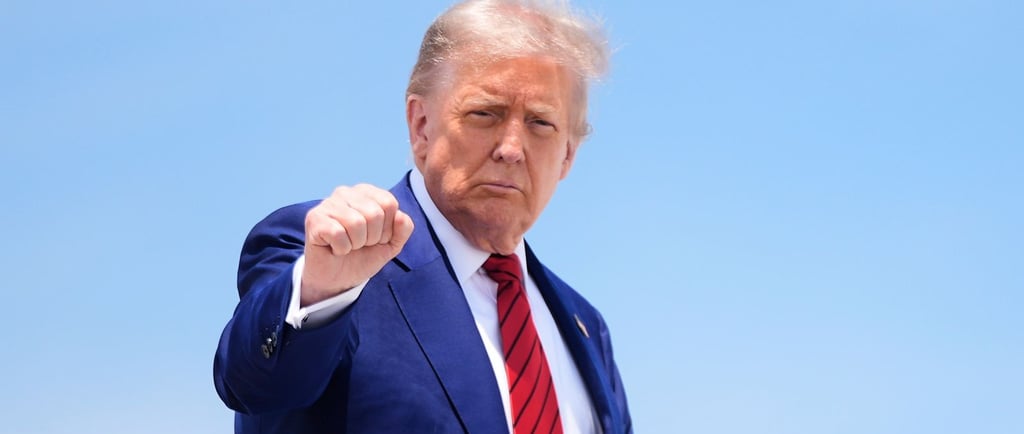Trump Declares Ceasefire Between Israel and Iran, Ending 12-Day War
Former President Donald Trump has announced a “complete and total ceasefire” between Israel and Iran, declaring an end to the 12-day conflict following U.S. strikes on Iranian nuclear facilities and Iranian missile attacks. Here's what he said, how world leaders and experts are responding, and what comes next.
WORLDWIDE
6/24/20252 min read


June 24, 2025 — In a striking announcement that dominated headlines worldwide, former U.S. President Donald Trump declared a complete and total ceasefire between Israel and Iran, bringing a sudden end to a short but highly volatile 12-day conflict in the Middle East. The statement, made through Trump’s Truth Social platform, referred to what he called “The 12 Day War,” framing the ceasefire as a result of American leadership and what he described as direct negotiations with Israeli Prime Minister Benjamin Netanyahu and key regional partners.
According to Trump, the ceasefire would roll out in phases, beginning with Iran halting operations within six hours of the announcement, followed by a pause in Israeli military activity after twelve. He credited Qatar’s diplomatic channels and Vice President J.D. Vance’s involvement in facilitating the agreement. Trump praised the outcome as a demonstration of courage, intelligence, and strength from all sides, suggesting that had the war continued, the entire Middle East could have been dragged into years of destruction.
While the announcement was met with applause from Trump’s political allies, especially among Republican lawmakers who supported his earlier decision to strike Iranian nuclear facilities, skepticism remained. On Capitol Hill, party loyalists described the ceasefire as a vindication of Trump’s strategy, citing the strikes on key sites in Fordow, Isfahan, and Natanz as a decisive blow that forced Iran’s hand without involving ground troops or triggering American casualties.
Vice President Vance, speaking on cable news shortly after the announcement, reinforced that position, emphasizing that American strength had once again brought peace without entangling the nation in a prolonged war. Supporters framed the resolution as a geopolitical win that reestablished U.S. dominance in conflict resolution and projected strength across the region.
Yet outside Trump’s circle, questions began to surface. Iranian state media did not immediately confirm the ceasefire. Reports from Tehran suggested the government remained wary, with ongoing air alerts and warnings issued across major cities. Iran’s foreign minister was quoted as saying that any real ceasefire would require Israel to stop all airstrikes immediately, a condition that had not yet been verified. Missile warnings continued in parts of Israel in the hours after Trump’s announcement, casting doubt over whether the deal was fully in effect or merely political posturing.
International observers also noted that the ceasefire lacked formal documentation. There was no signed agreement, no confirmation from the Israeli defense ministry, and no third-party verification from the United Nations or NATO. Diplomats welcomed the de-escalation in rhetoric but stopped short of calling it peace. Australian officials, among others, stated they would continue monitoring the situation closely, citing concerns over long-term stability and the fragility of trust between the two nations.
While Trump’s announcement carries symbolic weight, especially among his supporters during a crucial election year, whether the ceasefire holds depends on factors far beyond press releases. The absence of clear terms and mutual acknowledgment from both Iran and Israel raises doubts over the permanence of the truce.
As of now, there are no confirmed diplomatic meetings scheduled between the two nations. The White House has stated it will remain involved in overseeing the situation, though many in Washington note that the Biden administration has remained publicly cautious, refraining from directly commenting on Trump’s unilateral declaration.
The world waits to see whether this moment of calm is the beginning of a lasting peace or just a temporary pause in a much deeper and unresolved confrontation. What is clear is that the geopolitical balance in the region has shifted, at least for now, and the implications of this unexpected ceasefire will continue to unfold in the days ahead.